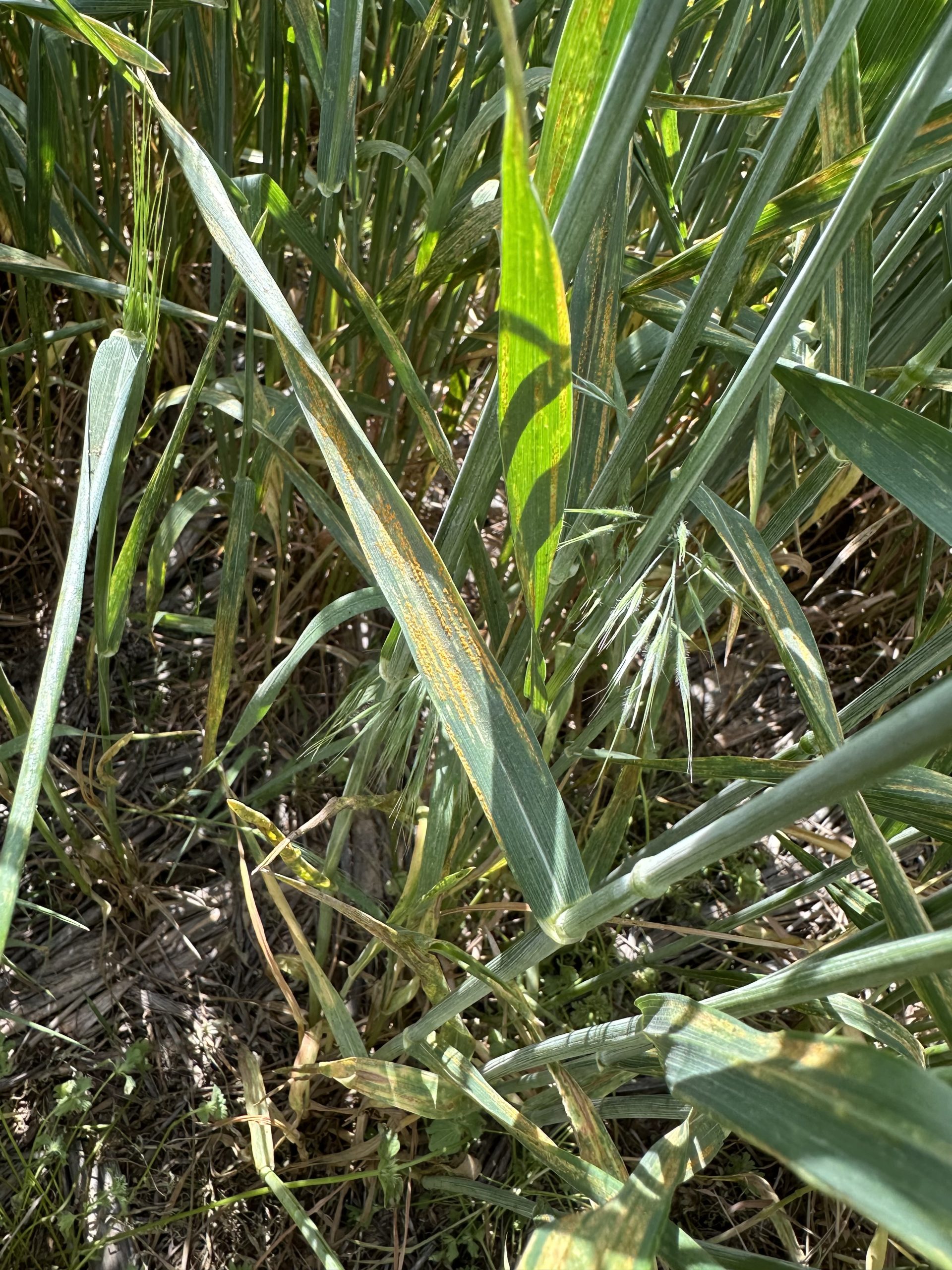As the Oklahoma wheat crop matures and starts to head out, disease, insect and drought pressure are becoming evident.
Meriem Aoun, Oklahoma State University small grains pathologist, said that in general, the wheat in southcentral and northcentral Oklahoma is in good condition. However, wheat fields in southwest Oklahoma are suffering from heavy stripe rust infection.
Stripe rust fungus is identified by the yellow-orange colors of the spores that can be seen on the leaves of wheat. It can damage the plant by reducing the photosynthetic areas and decreasing production of sugars. It is most commonly a problem in cool and moist areas during the growing season. Aoun said the disease was first reported in southwestern Oklahoma around the last week of March, then spread north and was reported in multiple counties.
“The disease pressure is increasing, so fungicide application is needed if a susceptible variety is grown,” Aoun said. “We also have seen other fungal diseases like powdery mildew, Septoria tritici blotch and tan spot, but primarily on the lower canopy and not as widespread as stripe rust.”
Additionally, she said barley yellow dwarf infection has been spotted in the wheat crop, with the most severe areas found near Stillwater, Oklahoma, especially in early-planted wheat. As for pests, Aoun said she has observed quite a few bird-cherry oat aphids in late March and early April near Stillwater.
“Bird-cherry oat aphids transmit barley yellow dwarf virus from plant to plant, and most barley yellow dwarf symptoms were observed on early-planted wheat,” Aoun said.
Rain is a concern for all wheat growers right now as the crop is a crucial stage in its development. The hot and windy conditions have set the crop back in many areas. However, Aoun said rain can be a double-edged sword for wheat crops right now.
“We need more rain to help with grain filling, but moisture will also favor the development of fungal diseases like rusts, so producers should keep scouting their fields and act if needed to protect the yield potential.”
Lacey Vilhauer can be reached at 620-227-1871 or [email protected].



